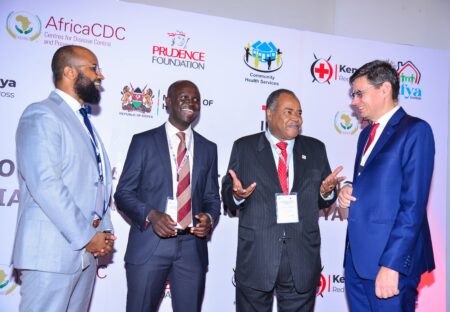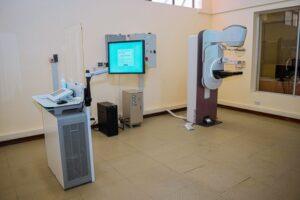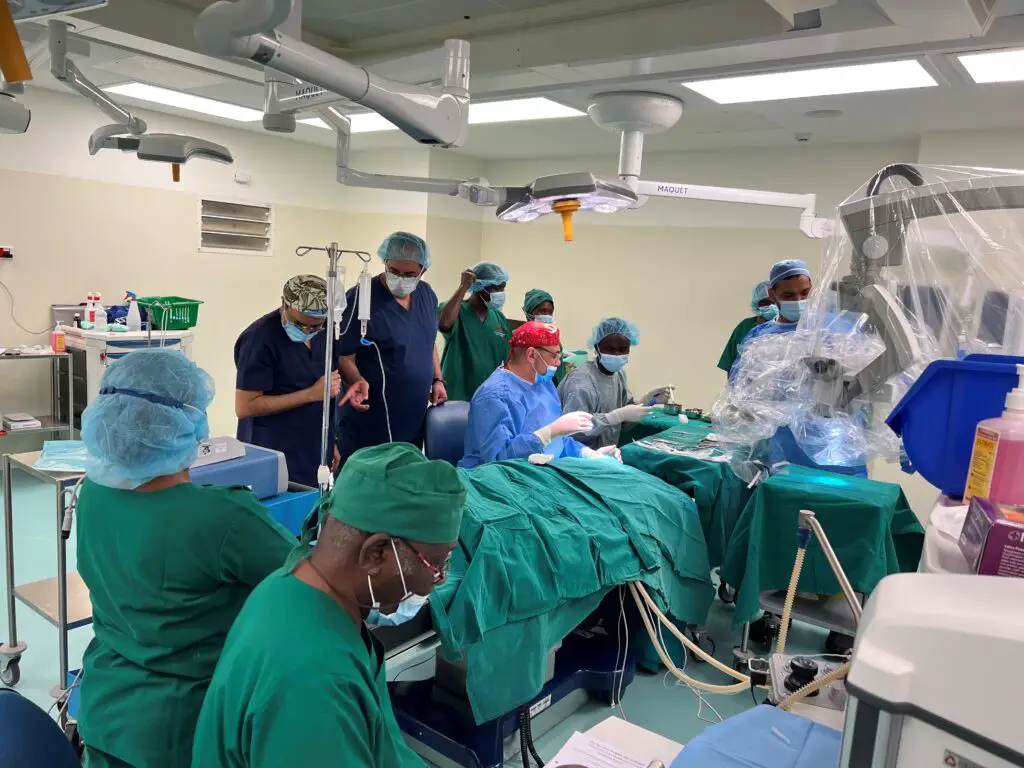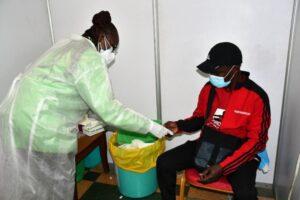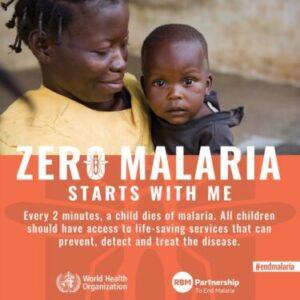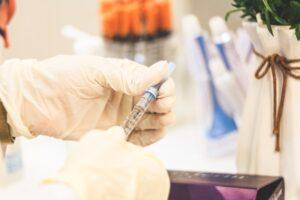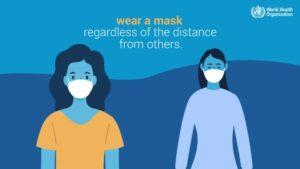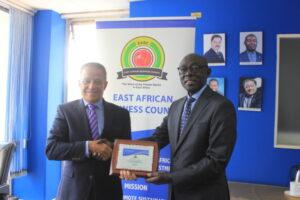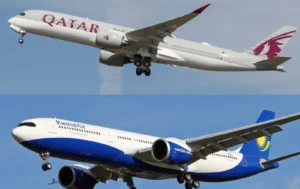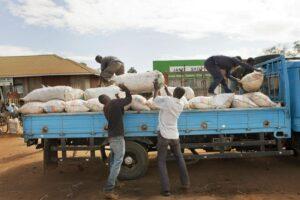- Africa’s new dawn: the rising role of digital and AI in agriculture
- Can Dangote Refinery Transform Africa Energy Ambition
- Gallup Survey: 80 per cent of Kenyan Workers Are Disengaged and Seek New Opportunities
- Madagascar Man Freed from 5KG Tumor After 15-Year Struggle
- How women in Africa are perceived and treated
- Sugar consumption in Kenya to Increase to 1.23 Million Tonnes
- Can Somalia and Turkey Oil deal Bring Change in Somaliland
- Remittances to Kenya dropped to $371.6 million in June, marking a six month low
Health
- Kenya has already enlisted over 107,831 community health workers through the Ministry of Health.
- The target cohort of 25,000 will be trained in the first phase, according to the Resilient and Empowered African Community Health (REACH) initiative.
- REACH will be implemented in phases, aiming to boost skills of the 107,831 community health workers employed by the Government.
Kenya has launched a community health initiative supported by the African Union geared to boosting primary health care at the grassroots, targeting under-served populations.
The programme, under the auspices of the African Union (AU) Member States, is known as Resilient and Empowered African Community Health (REACH) and is geared towards increasing Community Health Workers (CHWs) to over two million in the continent by 2029.
Under the first phase of the initiative, over 25,000 CHWs newly recruited in Kenya will be trained on community health and on the use of Community Health Promotion (CHP) …
The project uses a comprehensive approach to combat cancer, involving communities and building capacity to over 400 community health care workers, and raising awareness by printing and distributing over 3,000 books and 5,000 Information, Communications and Education (ICE) materials.
“This project aims to complement the government efforts towards reducing cancer morbidity and mortality,” said Minister of Health Ummy Mwalimu.
“The government cannot single-handedly combat the growing burden of cancer, hence we commend TCCP for their innovation towards demonstrating the success of public-private collaboration to control cancer in the country,” she added.…
- Aga Khan Hospital will use the funding to support covid-19 pandemic response
- The funding will benefit hospital and outreach centres in Tanzania and Kenya
- Qualifying groups to receive care at no cost
Aga Khan Hospital will start offering quality care treatment to qualifying needy patients at no cost. The development comes thanks to EUR 2.3 million of grant funds issued to the Aga Khan Hospitals in East Africa (Tanzania and Kenya) by France, through the French Development Agency.
The funding has been issued through Proparco, the private sector financing arm of AFD Group, the French Development Agency to help increase access to health care services by boosting oxygen supply and supporting needy patients with quality care.
“France has made supporting health systems one of the priorities of its covid-19 pandemic response and has been at the forefront of the European and international efforts to support developing and emerging countries through …
A new report by Global Fund has found that the COVID-19 pandemic had a devastating impact on the fight against HIV, TB and malaria in 2020.
The Result Report shows that while some progress was made, key programmatic results have declined for the first time in the history of the Global Fund, which is now marking its 20th anniversary.
Global Fund Executive Director Peter Sands said that while they had hoped to focus this year’s results report on progress achieved against HIV, TB and malaria over the last two decades, the 2020 numbers force a different focus.
“They confirm what we feared might happen when COVID-19 struck,” Sands said.
The Results Report reveals the catastrophic impact the COVID-19 pandemic had on the fight against TB worldwide.
In 2020, the number of people treated for drug-resistant TB in the countries where the Global Fund invests dropped by a staggering 19%, …
Kenya has become the first country in Africa, and globally, to launch a national malaria youth army.
In the global arena, it has been a constant battle to eradicate malaria and efforts have been channeled towards this initiative.
Below is a global map and the malaria prevalence in each country.
Countries with zero indigenous cases over at least the past three consecutive years are considered to have eliminated malaria.
In 2019, China and El Salvador reported zero indigenous cases for the third consecutive year and have applied for World Health Organisation (WHO) certification of malaria elimination; also, Iran, Malaysia and Timor Leste reported zero indigenous cases for the second time.
In 2017, the WHO warned that the global response to the malaria menace had reached crossroads. This was a wake-up call from the organisation that more needs to be done to further reduce the spread of the disease.
The …
Kenya received a further 180,000 doses of AstraZeneca vaccine on Friday, even as the number of those who have been vaccinated surpass 1.7 million.
In a statement, the Ministry of Health says the addition will serve as a boost to the ongoing vaccination efforts amid increased Covid-19 cases across the country.
So far, a total of 209, 823 cases have been reported Kenya.
The latest consignment, which was a donation from the Greek government, pushes the number of vaccines received in the country to 2,323,100.
Speaking at JKIA after receiving the consignment, National Taskforce on Vaccine Deployment Chair Dr. Willis Akhwale said the donation was a welcome boost to the ongoing vaccination exercise.
Akhwale said the government expects to have vaccinated 10 million people by the end of this year.
At the same time, Deputy Head of mission at the Embassy of Greece in Kenya Counsellor Sotirios Demestichas, said the …
The first 1000 days after conception are very vital in a child’s life. This is a formative stage where the child needs nutrients and protection to enable them to thrive. Children who lack these key nutrients during the 1,000 days between conception and the age of two become stunted permanently.
This also makes them more predisposed to diseases as they are weaker.
According to data from the African Development Bank (AfDB), statistics from two years ago show that two out of five of the world’s stunted children under the age of five were living in Africa. This is an increase from the 2017 data that showed that only over one-third of five children were stunted.
Also Read:Safeguarding food security, nutrition in East Africa in the pandemic era
Africa is the only region in the world where the number of stunted children has risen in the past several years. This …
This is the message being emphasised by Africa Centres for Disease Control and Prevention (Africa CDC) as the world pushes for continuous usage of masks in a bid to stop the spread of COVID-19.
“As the pandemic continues to spread, we must fight against pandemic fatigue and continue masking to protect our friends, our families, our communities, and the world,” reads a statement from Africa CDC.
According to the World Health Organisation (WHO) every three weeks, the new Delta variant cases keep doubling. This is not a good sign. WHO data shows that a third wave has now been reported in 16 countries. This includes nine countries that are currently experiencing surging cases.
The World Health Organisation has classified each emerging variant as either a Variant of Concern (VOC) or a Variant of Interest (VOI). The Alpha, Beta, Gamma and Delta variants fall under Variants of Concern. Whereas the Eta, …
The EAC bloc should urgently work to attract international investors and embark on joint regional investments in the vaccine manufacturing industry for quick economic recovery.
This is according to East African Business Council Chairman Nicholas Nesbitt who is calling for a coordinated approach on COVID-19 measures to spur EAC economic recovery and growth.
Nesbitt noted that joint EAC investment offers a larger pool of capital resources, expertise and market.
At the same time, EAC’s board has directed the EABC Secretariat to champion advocacy on the adoption of open skies and one network area to reduce the cost of doing business in the region.
The board said that open skies attract regional tourism and improve consolidation of EAC exports to overseas markets such as horticulture.
According to the board, open skies are also critical in supporting the resilience and recovery of tourism, hospitality and transport sectors, which were highly impacted by …





